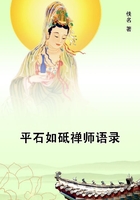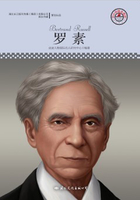Despite the tenacious opposition of many of the planters, from about the year 1883 the movement for emancipation made great headway. There was a growing determination on the part of the majority of the inhabitants to remove the blot that made the country an object of reproach among the civilized states of the world. Provinces and towns, one after another, freed the slaves within their borders. The imperial Government, on its part, hastened the process by liberating its own slaves and by imposing upon those still in bondage taxes higher than their market value;it fixed a price for other slaves; it decreed that the older slaves should be set free; and it increased the funds already appropriated to compensate owners of slaves who should be emancipated. In 1887 the number of slaves had fallen to about 720,000, worth legally about $650 each. A year later came the final blow, when the Princess Regent assented to a measure which abolished slavery outright and repealed all former acts relating to slavery. So radical a proceeding wrought havoc in the coffee-growing southern provinces in particular, from which the negroes now freed migrated by tens of thousands to the northern provinces. Their places, however, were taken by Italians and other Europeans who came to work the plantations on a cooperative basis. All through the eighties, in fact, immigrants from Italy poured into the temperate regions of southern Brazil, to the number of nearly two hundred thousand, supplementing the many thousands of Germans who had settled, chiefly in the province of Rio Grande do Sul, thirty years before.
Apart from the industrial problem thus created by the abolition of slavery, there seemed to be no serious political or economic questions before the country. Ever since 1881, when a law providing for direct elections was passed, the Liberals had been in full control. The old Dom Pedro, who had endeared himself to his people, was as much liked and respected as ever. But as he had grown feeble and almost blind, the heiress to the throne, who had marked absolutist and clerical tendencies, was disposed to take advantage of his infirmities.
For many years, on the other hand, doctrines opposed to the principle of monarchy had been spread in zealous fashion by members of the military class, notable among whom was Deodoro da Fonseca. And now some of the planters longed to wreak vengeance on a ruler who had dared to thwart their will by emancipating the slaves. Besides this persistent discontent, radical republican newspapers continually stirred up fresh agitation. Whatever the personal service rendered by the Emperor to the welfare of the country, to them he represented a political system which deprived the provinces of much of their local autonomy and the Brazilian people at large of self-government.
But the chief reason for the momentous change which was about to take place was the fact that the constitutional monarchy had really completed its work as a transitional government. Under that regime Brazil had reached a condition of stability and had attained a level of progress which might well enable it to govern itself. During all this time the influence of the Spanish American nations had been growing apace. Even if they had fallen into many a political calamity, they were nevertheless "republics," and to the South American this word had a magic sound. Above all, there was the potent suggestion of the success of the United States of North America, whose extension of its federal system over a vast territory suggested what Brazil with its provinces might accomplish in the southern continent. Hence the vast majority of intelligent Brazilians felt that they had become self-reliant enough to establish a republic without fear of lapsing into the unfortunate experiences of the other Hispanic countries.
In 1889, when provision was made for a speedy abdication of the Emperor in favor of his daughter, the republican newspapers declared that a scheme was being concocted to exile the chief military agitators and to interfere with any effort on the part of the army to prevent the accession of the new ruler. Thereupon, on the 15th of November, the radicals at Rio de Janeiro, aided by the garrison, broke out in open revolt. Proclaiming the establishment of a federal republic under the name of the "United States of Brazil," they deposed the imperial ministry, set up a provisional government with Deodoro da Fonseca at its head, arranged for the election of a constitutional convention, and bade Dom Pedro and his family leave the country within twenty-four hours.
On the 17th of November, before daybreak, the summons was obeyed.
Not a soul appeared to bid the old Emperor farewell as he and his family boarded the steamer that was to bear them to exile in Europe. Though seemingly an act of heartlessness and ingratitude, the precaution was a wise one in that it averted, possible conflict and bloodshed. For the second time in its history, a fundamental change had been wrought in the political system of the nation without a resort to war! The United States of Brazil accordingly took its place peacefully among its fellow republics of the New World.















